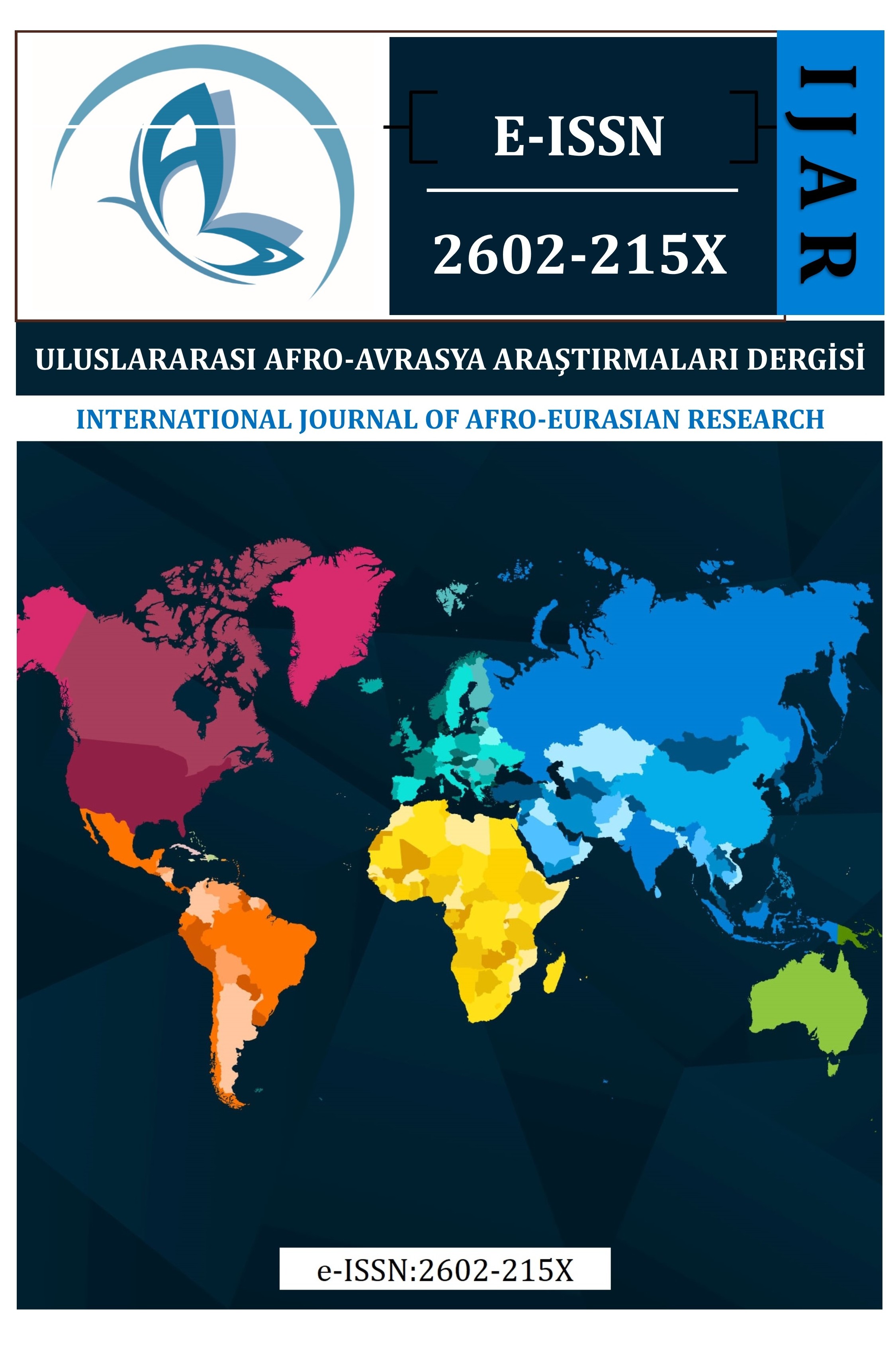“FOLKLOR VE İSLAM” PROBLEMİNE ARKAİK-MİTOLOJİ DÜŞÜNCE KONTEKSİNDE BAKIŞ
folklor, mit, mitoloji, din, İslam, materyalizm, idealizm, toplumsal bilinç, mitolojik bilinç, tarihsel bilinç
A VIEW TO THE PROBLEM “FOLKLORE AND ISLAM” IN THE ARCHAIC-MYTHOLOGY THINKING CONTEXT
Folklore, Myth, Mythology, Religion, Islam, Materialism, Idealism, Social Consciousness, Mythological Consciousness, Historical Consciousness,
___
- 1. Mehdiyev N., Orta Çağ Azerbaycan Kültürünün Bazı Etnik Esasları, Azerbaycan filololojisi Sorunları, 2. Yayını, Bakü, 1984, s. 236-241
- 2. Rzasoy S., Nizami “Yeddi Güzül”i Metninde Modellşen Dünya ve Semiotik Mifoloji Fonksiyonlu İsimler, Genç Edebiyatçıların Respublika Konferansı (tezisler), Bakü, “İlm”, 1992, s. 50-51
- 3. Rzasoy S., Şüurun İnkişaf Merhaleleri: Mitoloji ve Tarihi Bilinç, Azerbaycan Şifahi Halk Edebiyatına Dair Tetkikler, XLI kitap, Bakü, “İlm ve Tahsil”, 2013, s. 168-2014. Введение в философию, В 2-х частях, Часть 1, Москва, 1989, c. 291 5. Гуревич А.Я., Категории средневековой культуры, Москва: Наука, 1984, c. 350
- 6. Иванов Вяч. Вс., Топоров В.Н., Славянские языковые моделирующие семиотические системы (древний период), Москва, Наука, 1965,c. 246
- 7. Леви-Строс К., Структурная антропология, Москва, Глав. Ред Вост. Лит., 1985, c.536
- 8. Стеблин-Каменский М.И., Миф, Ленинград, Наука, 1976, c.121
- 9. Элиаде М., Аспекты мифа, Москва, Академический проект, 2001. c. 240
- Başlangıç: 2016
- Yayıncı: Hakan ARIDEMİR
GÜNEY AFRİKA'YI ULUSLARARASI HİYERARŞİDE KONUMLANDIRMAK: YENİ YÜKSELEN ORTA ÖLÇEKLİ GÜÇ
NURETTİN TOPÇU’NUN GENÇLİĞİN İÇİNE SÜRÜKLENDİĞİ YOZLAŞMA SÜRECİNİN SEBEPLERİNE İLİŞKİN GÖRÜŞLERİ
SİGORTA SEKTÖRÜNÜN HAYAT DIŞI BRANŞININ FİNANSAL VE TEKNİK PERFORMANSLARININ ANALİZİ
İnci Merve ALTAN, Murat YILDIRIM
DÖNÜŞEN DÜNYA DÜZENİNDE “BRICS” ve TÜRKİYE’YE ETKİSİ
Deniz İSTİKBAL, Şerif DİLEK, Merve YANARTAŞ
“KİTAB-İ DEDE KORKUT”: TANRIÇILIKTAN İSLAMA KEÇİDİ İNİKAS EDEN TOTAL MODELLEŞTİRİCİ SİSTEM
TÜRKİYE'DE YAŞAYAN GEÇİCİ KORUMA ALTINDAKİ SURİYELİLERİN VERGİ ADALETİ ÜZERİNDEKİ ETKİLERİ
ÖTANAZİ: TÜRK HUKUKU AÇISINDAN BİR DEĞERLENDİRME
DOLAYLI BİR ÇEVİRİ OLARAK “THE SIEGE” İSMAİL KADERE’NİN İNGİLİZCESİ
BATI AFRİKA’DA KENTLEŞME HAREKETLERİ: LAGOS ÖRNEĞİ
